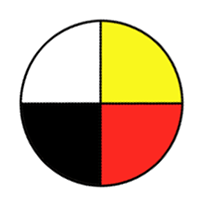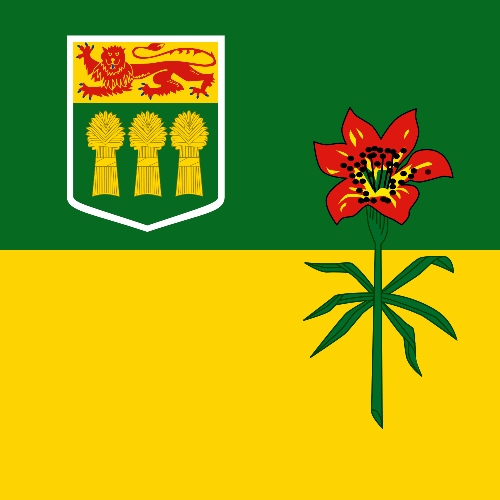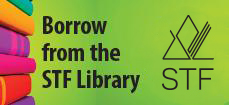


Let’s Talk Science provides educators of grades 1 to 12 with free, curriculum-aligned STEM resources, including hands-on activities, lesson plans, and professional learning opportunities. It also offers access to outreach programs and digital platforms that support student engagement in science, technology, engineering, and math.
Here are some of the resources that are offered:
- Classroom Resources
- Programs
- Career Resources
- Professional Learning for Teachers
- Request a Volunteer Visit





















- Pearson Saskatchewan Science 5. SMART Notebook Lessons
- Pearson Saskatchewan Science 5. Teacher's Resource Kit

The lessons are not meant to be used sequentially. They are stand-alone lessons to be used when appropriate within the curriculum to support, enrich or extend it.
The resource includes a table of contents, a glossary and an index.

Online videos at www.edutopia.org demonstrate how role models help to generate student understanding. There are examples that show how educators can enable students to think critically, transfer skills and knowledge and be flexible problem solvers, both inside and outside the classroom.
The book includes a table of contents, an appendix, a bibliography and a subject index.
The Sask Outdoors website offers educators a wealth of resources, including lesson plans, professional development opportunities, and tools designed to integrate outdoor and environmental education into their teaching practices. It also provides access to specialized programs like Project WET, climate action education, and guides for facilitating outdoor learning experiences.
Some of the resources offered:
-
Curriculum-Aligned Lesson Plans – Access a variety of outdoor and environmental education lessons tailored to Saskatchewan curricula.
-
Professional Development Workshops – Participate in training programs like Project WET, Project WILD, and Below Zero to enhance outdoor teaching skills.
-
Climate Action Education Resources – Explore toolkits and guides for teaching climate change, sustainability, and environmental stewardship.
-
Outdoor Learning Guidebook – Download “A Teacher’s Guidebook for Bringing Learning Outside” to support planning and risk management for outdoor education.
-
Networking and Community Events – Join a community of educators and outdoor leaders through conferences, meetups, and collaborative initiatives.















- Uncovering Student Ideas in Science, Volume 2: 25 More Formative Assessment Probes
- Uncovering Student Ideas in Science, Volume 3: Another 25 Formative Assessment Probes
- Uncovering Student Ideas in Science, Volume 4: 25 New Formative Assessment Probes

The book includes photographs, illustrations, a table of contents, a note on the symbols used in the book and an index. American and Canadian First Nations contributions are discussed in the book.

These concepts form a foundation for explanations of weather patterns including the jet stream, storm fronts and the formation of tornadoes and hurricanes. Each chapter has two sections: Things to Do Before You Read the Science Stuff and The Science Stuff.
The book includes suggested activities, a table of contents, a glossary and an index.


A teacher's guide is available.







The book includes suggested activities, a table of contents, a glossary and an index.



The book includes a table of contents, an appendix, a reference, a bibliography and an index.


The handbook includes samples of student work and a table of contents.











































The book includes a table of contents, appendices and an index.

The book includes a table of contents, a glossary and an index.











The book includes a table of contents and an index.






The book includes photographs, illustrations, a table of contents, a note on the symbols used in the book and an index.




The book includes photographs, illustrations, a table of contents, a note on the symbols used in the book and an index.













A teacher's guide is available.



The book includes a table of contents, a glossary and an index.


















This document will assist individuals and communities to engage in meaningful discussions and actions to respond to the experiences, perspectives and needs of students and families who are gender and/or sexually diverse (GSD).
Content includes:
- Gender and Sexual Diversity
- First Nations and Métis Ways of Knowing
- Assumptions, Privilege and Oppression
- Comprehensive School Community Health (CSCH)
- CSCH Approach to Creating Inclusive Schools














- Abstraction: Grades 4-6
- Algorithmic Thinking: Grades 4-6
- Decomposition: Grades 4-6
- Focus on Coding and Literacy: Grades 4-6
- Focus on Coding and Numeracy: Grades 4-6
- Focus on Coding and STEM: Grades 4-6
- Pattern Recognition: Grades 4-6
- Testing and Evaluating: Grades 4-6









and grades. Suggested curriculum outcomes are identified and, if applicable, supporting indicators
are noted.
















The purpose of the presentation is to describe strategies teachers can use to approach content that may be perceived as sensitive in their community in order to:
- ensure the learning environment is safe for respectful dialogue;
- teach students how to think critically about any topic with an open mind; and,
- meet curricular outcomes.





Saskatchewan context, differentiation is addressed through the Adaptive Dimension which enables all teachers to respond to student diversity, including their strengths and needs, interests, backgrounds, life experiences and motivations.













